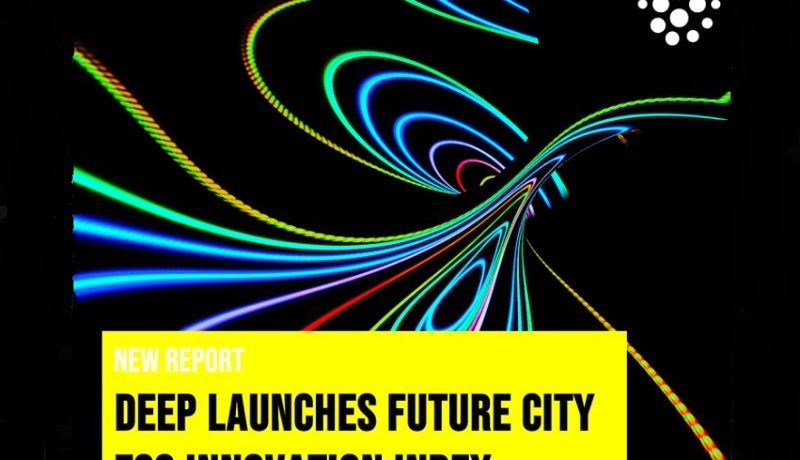Future City ESG Innovation Index. Where will be the “Sustainability Valley”? With the newly developed index DEEP Ecosystems provides a thorough analysis of the capabilities of cities and their innovation ecosystems to capture the immense economic opportunity from the future demand for solutions in the ESG sectors worldwide.
The report reveals a total of $60bn being invested in ESG focused startups across over 100 cities since 2018.
Included are ESG solutions that will likely see a surge in demand in the future, when the transition to a more green and sustainable economy accelerates.
It includes solutions for ecology, waste management and clean energy in the environment sector, health and education solutions in the social ESG sector and e-government, public transport and smart city solutions in the governance related ESG sector.
With such economic growth potential, cities are eager to win the race to become the new innovation champion. The report elaborates on city-level strategies for ESG innovation with many examples. It shows that first-movers have an advantage.
For example, Stockholm, that was one of the first European cities to embrace a green economy as a strategy ranks 2nd for ESG investments with >$7bn raised since 2018.
Another hidden champion, Copenhagen scores high due to its government support for ESG solutions.
And the city of Moscow boasts a strong knowledge base as well as the highest share of EdTech startups, that is considered under the Social Dimension of ESG.
The report analyses the potential of innovation hubs to support sustainable innovation in the ESG fields based on 4 sub-indexes with 8 compound metrics and 29 individual indicators.
These cover the Community of ESG Entrepreneurs, their Entrepreneurship Support Network for ESG Solutions, the Societal Backing for ESG solutions as well as the Governance by local authorities.
Next to the rankings, the publication features 8 in-depth case studies on London, Moscow, Berlin, Tel Aviv, Paris, Stockholm, Copenhagen and Madrid. Last but not least it lists the top 70 startups based on investments raised.
The Future City ESG Innovation Index di DEEP Ecosystems
Startup Heatmap classifica 57 città europee per la loro disponibilità a far crescere l’innovazione sostenibile, tenendo conto delle azioni del governo come l’elettrificazione delle flotte di autobus, nonché delle metriche di innovazione del settore privato come la crescita della scena delle startup ESG.
Milano è al 10° posto nel Future Cities ESG Innovation Index
– Numero molto alto di studenti STEM: 55.660 (rank 5) e sviluppatori: 5.191 (rango 11), Ancora una buona percentuale di studentesse del 55%
– Rete di supporto all’imprenditorialità:
—- Buon numero di acceleratori per le startup (46, rank 5)
—- Ma basso livello di investimenti, in particolare in ESG: 41° posto per livelli di investimenti e specializzazione
– Forte azione del governo verso la mobilità sostenibile a Milano:
—- 3° più alto numero di autobus elettrici (375)
—- 4° più alto numero di auto in condivisione (7.079)
—- 9° rete metropolitana più grande d’Europa (97km)
—- Tranne che per: 23° posto nelle piste ciclabili (253km) e 47° posto per numero di auto pro capite (620 per mille)
– Investimenti crescenti nell’innovazione
—- 2° posto per gli investimenti privati in R&S in Europa con 55,7 miliardi di euro
—- Crescente appetito per l’acquisto di startup con 4 acquisizioni di startup ESG da parte di aziende milanesi negli ultimi 3 anni. 12° posto
– Complessivamente una buona accettazione di ESG nella popolazione
—- Densità della comunità e della rete al 8° posto (sulla base di una combinazione di indicatori che misurano progetti dal basso come campagne di crowdfunding, ecc.)
Roma segue al 13° posto, Palermo (46°), Torino (48°), Bologna (53°), Firenze (55°), Napoli (56°) finiscono nella parte bassa della classifica.
Accanto alle classifiche, la pubblicazione presenta 8 casi di studio approfonditi su Londra, Mosca, Berlino, Tel Aviv, Parigi, Stoccolma, Copenhagen e Madrid. Infine, ma non meno importante, elenca le 70 migliori startup in base agli investimenti raccolti.

